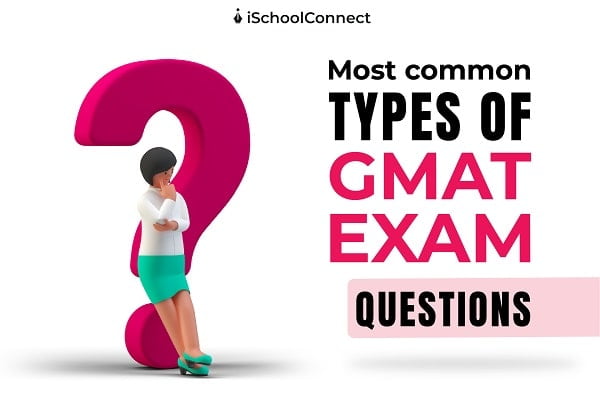Table of Contents
What is the GMAT Exam?
GMAT, also known as Graduate Management Admission Test is a Global Business School Admission exam. It has an existence span of more than 50 years. To target the current-generation skills, which are most relevant to success in graduate management programs, the Test-Makers, have specially designed the new GMAT Focus edition. Scores range from 200 to 800, with the verbal and quantitative sections contributing to the overall score.
Why GMAT to get enrolled in a GMAT school?
The GMAT allows the school to determine whether your fundamentals are solid enough that you’ll likely be able to succeed in their program.
Exam Pattern of the GMAT
This exam evaluates candidates across four distinct sections. Following are some pointers for GMAT exam pattern 2024
- Analytical Writing Assessment (AWA): This section evaluates the test-taker’s ability to analyze an argument and effectively communicate ideas through written responses.
- Integrated Reasoning (IR): This section measures the ability to interpret and synthesize information from various sources. It is focused on assessing the analytical skills of the test-taker.
- Quantitative Section (QS): This section covers topics like algebra, geometry, and data interpretation which helps in evaluating mathematical and quantitative reasoning skills.
- Verbal Section (VS): It is comprised of testing language proficiency and reasoning abilities. It also includes reading comprehension, critical reasoning, and sentence-correct questions.
Also read: GMAT Score, Everything that you need to know about it
How to Prepare for the GMAT exam?
- Utilize Free Resources: Take advantage of free online resources such as the GMAT official Starter Kit, which provides practice exams, scoring algorithms used on real exams, time management reports, and custom practice sets based on question types and difficulty levels.
- Create Study Plans: Establish a structured study schedule that spreads your preparation over several weeks. Give dedicated hours to your study, ideally committing 2-3 hours daily. For an ultimate study plan visit Study Plan for GMAT,
- Seek Tips Online: Visit GMAT tips for making your online preparation more strong and more competent for the exam.
- Incorporate Practice Exams: Regularly take full-length practice exams with time constraints to get into the exam environment. This is critical, as it will help build understanding and manage time accordingly for the real exam. Check here for important GMAT prep questions visit.
- Review and adjust your strategy: Continuously monitor your progress and adjust your study tactics accordingly. For the ultimate study plan visit GMAT Study Plan.
Also Read: Ace Your GMAT Exam in 30 Days With These Insider Tips
Important Tips for GMAT Preparation
- Resources: Do align yourself with your resources which refers to your GMAT prep. For the reference of resources visit Resources to refer for your GMAT prep. For preparation ideas visit Preparation Tips & Tricks
- Section-wise test preparation: Do preparation section-wise? Identify your weaknesses and strengths. Give dedicated hours to your lacking sections for better preparation and time management. For section-wise tips visit Section Wise Test Preparation Tips.
- Know the structure of the test: Familiarity with the GMAT’s structure can greatly enhance your preparation. The test comprises 4 sections: Analytical Writing, Integrated Reasoning, Quantitative Reasoning, and Verbal Reasoning. For a more detailed view visit GMAT Structure.
- Stay Motivated and Consistent: A positive mindset and consistent study effort will replenish your weaker sides. Listen to the student’s experience as it will help you know more about the exam and its structure.
Also Explore these |
Also check this: GMAT Exam Dates 2024: Complete Guide
Advantages of Self-studying for the GMAT Exam
- Cost Effective: One of the most significant advantages of self-studying for GMAT is its cost-effectiveness. Self-study requires fewer financial resources as compared to a paid enrolled course.
- Schedule Flexibility: Unlike the paid courses and academic programs, self-study provides you the flexibility in scheduling and you can accommodate your commitments at work or personally.
- Discipline Development: Engaging in self-study promotes a sense of self-motivation and discipline. It can also increase your management and organizational skills. If you want to prepare GMAT for MBA in 2024, read our detailed article here.
Read Also: List of Schools Offering an MBA Without GMAT
FAQ:
Ques.1: How to stay motivated throughout the preparation?
Answer: Take a rest break from time to time as overworking yourself can lead to health issues and you don’t wanna get ill in the middle of your preparation. Do not panic, be consistent as consistency is the key.
Ques.2: What to consider for a good GMAT score?
Answer: For a good GMAT score consider the following:
- Research the average GMAT scores: Research the average GMAT scores of the schools you are interested in. The average total score is around 546.
- Understanding Where Your Score Places You: Understanding the Score Place is essential. For instance, scoring above 600 generally means you’re better than half of all the test-takers.
- Contextual Factors: Your Academic History (GPA) and work experience, can influence what constitutes a strong GMAT score for you






